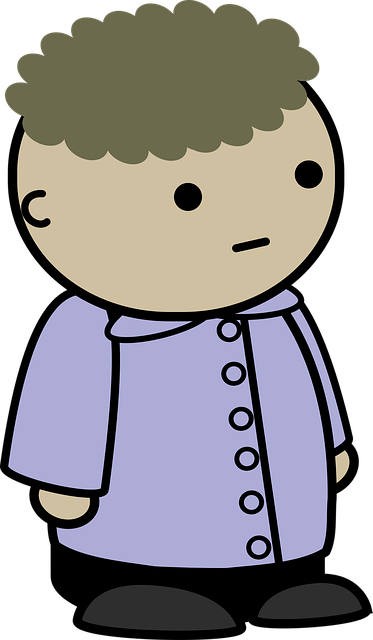Teen depression, caused by biological, psychological, and social factors, requires early intervention through empathetic environments, open communication, and professional help like Cognitive Behavioral Therapy (CBT). CBT empowers teens by teaching them to challenge negative thoughts, engage in positive activities, and rebuild resilience. This tailored approach fosters active participation in healing, dispel stigma, and offers long-term benefits with sustained improvements in mood and functioning.
Depression among teenagers is a growing concern, but cognitive-behavioral therapy (CBT) offers a powerful tool in combating this mental health challenge. This article explores CBT’s role in supporting teens with depression, delving into the signs and causes of teen depression, the therapeutic techniques used for emotional regulation, and how therapy is adapted to meet adolescent needs. We’ll also highlight long-term benefits and share success stories, emphasizing CBT’s effectiveness in fostering resilience and improving mental well-being.
Understanding Teen Depression: Signs and Causes
Teen depression is a serious mental health issue that requires understanding and effective treatment. It’s essential to recognize the signs, as early intervention can be life-changing for young individuals. Symptoms can include persistent feelings of sadness, loss of interest in activities once enjoyed, changes in appetite and sleep patterns, fatigue, difficulty concentrating, and even thoughts of self-harm or suicide.
Causes are multifaceted, encompassing biological, psychological, and social factors. Hormonal imbalances, genetic predisposition, traumatic life events, chronic stress, and certain medical conditions can contribute to its development. Furthermore, social pressures, academic demands, family dynamics, and peer relationships can all play a role in triggering or exacerbating depressive episodes. Supporting teens with depression involves creating an environment of empathy, encouraging open communication, and seeking professional help from therapists specialized in cognitive-behavioral therapy (CBT) or other evidence-based approaches.
CBT Techniques for Emotional Regulation
Cognitive-behavioral therapy (CBT) employs a range of effective techniques for emotional regulation, which are instrumental in supporting teens with depression. One key approach is identifying and challenging negative thought patterns. Teens learn to recognize unhelpful cognitive distortions, such as all-or-nothing thinking or catastrophizing, and replace them with more balanced perspectives. This process helps to break the cycle of negative emotions and behaviors associated with depression.
Additionally, CBT encourages teens to engage in activities that promote positive emotions, like exercise, mindfulness practices, and social interactions. By fostering a sense of control over their emotional responses, CBT equips teens with valuable coping strategies to manage symptoms of depression effectively. These techniques not only help in the short term but also empower teens to maintain their mental health in the long run.
Tailoring Therapy to Teen Needs
Cognitive-behavioral therapy (CBT) is a powerful tool tailored specifically to support teens with depression, addressing their unique needs and challenges. This therapeutic approach recognizes that adolescent minds are still developing, and thus, adapts to their cognitive and emotional stages. CBT for teens often involves techniques like teaching coping strategies, challenging negative thought patterns, and gradually exposing them to feared situations, all of which help rebuild resilience and promote positive behaviors.
By tailoring therapy to teens, professionals can create a safe space where they feel heard and understood. This personalized approach encourages active participation in their own healing process, fostering a sense of autonomy and empowerment. As CBT gains momentum, it helps dispel the stigma surrounding mental health issues among teenagers, making it an increasingly popular and effective method for supporting teens with depression.
Long-term Benefits and Success Stories
The long-term benefits of CBT for teen depression are well-documented, offering a promising outlook for young individuals struggling with their mental health. Studies show that CBT can lead to sustained improvements in mood and overall functioning over time. Many participants continue to experience positive results even years after completing therapy, demonstrating the durability of these treatment effects. This long-lasting impact is particularly significant when compared to other forms of treatment, highlighting CBT’s effectiveness in managing depression in adolescence.
Success stories from teens who have undergone CBT are a powerful testament to its ability to support and empower young people. Many individuals report feeling equipped with valuable coping strategies that enable them to navigate life’s challenges more effectively. These skills not only help manage depressive symptoms but also foster resilience, self-confidence, and overall well-being. Real-life examples of teens who have overcome depression through CBT inspire hope and provide a sense of achievement, encouraging others to seek similar treatment options for their own mental health journeys.
Cognitive-behavioral therapy (CBT) offers a powerful and effective approach to supporting teens with depression, providing them with essential tools for emotional regulation and coping. By addressing negative thought patterns and behaviors, CBT helps young individuals gain insight into their feelings and develop healthier strategies for managing symptoms. Tailored to the unique needs of teenagers, this therapeutic method not only provides short-term relief but also fosters long-term resilience and improved mental well-being. With proven success stories and ongoing research highlighting its benefits, CBT remains a valuable asset in the arsenal for supporting teens struggling with depression.
